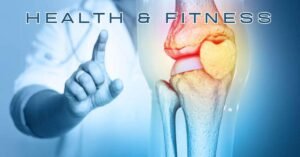Introduction
Bodybuilding supplements are often used by athletes, weightlifters, bodybuilders, and mixed martial arts folks to help boost lean muscle growth. Bodybuilding supplements often claim to boost muscle mass, weight, and athletic performance, all while helping to reduce body fat for that perfect muscle definition. High-protein beverages, pre-workout mixes, essential fatty acids, glutamine, arginine, branched-chain amino acids (BCAA), creatine, HMB, whey protein, ZMA, and weight loss products are some of the most popular. Both single-ingredient preparations and “stacks”—proprietary combinations of different supplements touted as providing synergistic benefits—are available for purchase.
The liquid left over after curdling and straining milk is called whey. It is often the protein advised following exercise because it absorbs very quickly. Protein comes in two main varieties: isolate and concentrate.
In general, a concentrate will have more fat and carbohydrates and less protein by weight. An isolate shows that further processing was done to boost the protein content and eliminate any sources of fat or carbohydrates. Although an isolate should ideally digest and absorb more quickly than a concentrate, the protein quality is equal.
Need of Bodybuilding supplements
Because whey protein is a complete protein, it contains all the amino acids required for muscle building, so consuming it has many advantages. Milk proteins have the highest digestion score when it comes to protein quality. Beyond promoting muscle growth, whey protein offers many other benefits. Studies have also linked whey consumption to better immune system responses and better sleep.
Numerous research have examined how whey protein affects training and performance, and they have discovered that taking 20–40g of whey protein daily or more for 8–12 weeks increased lean body mass, increased strength, and decreased fat mass.
Amino Acids Which body need:
What does this imply for someone who wants to gain muscle? Whey is an excellent, comprehensive protein source that will benefit most if taken every three to four hours (if you are not eating other protein sources) or in quantities of 20 to 40g within two hours after working out.

Creatine
A non-essential amino acid, creatine is primarily deposited in our muscles and, to a lesser extent, in the brain. Foods like fish and red meats naturally contain it. Muscle reserves are only 60–80% saturated in a typical diet that includes 1-2 grams of creatine daily. Since natural sources are primarily found in animal products, vegans and vegetarians will probably have fewer reserves.
One of the most researched bodybuilding supplements is creatine, specifically for its capacity to boost muscle mass! According to research, adding creatine to the diet can result in gains in muscle mass in as little as four weeks.
People often suggest a creatine loading protocol to get the fastest results.
The average person may replenish their creatine storage by ingesting 5 grams (0.3 grams per kilogram) four times a day for five to seven days. After a loading period, 5 grams a day can maintain levels (larger people may need 10 grams).
After exercising, creatine helps muscles recover faster by speeding up the return of water and carbohydrates.
Crucial Amino Acids
Nine amino acids are essential since the body cannot manufacture them independently and must be obtained from the diet. As a result, any animal-based product can provide you with natural essential amino acids!
Essential amino acids, which are utilized in the metabolism of muscles and proteins, have been suggested to aid in promoting gains in lean body mass. Supplementing with necessary amino acids helps preserve lean tissue and promote muscle protein synthesis during fasting or highly low-calorie diets.
The amount of necessary amino acids you can eat each day is unlimited. 5–9g dosages of essential amino acids are advised to promote muscle protein synthesis before and/or after resistance training.
However, all amino acids—essential and non-essential—are required to promote muscle protein synthesis. As a result, premium protein sources would be more effective at fostering muscle growth than only needed amino acids. Furthermore, using essential amino acid supplements along with a high-protein diet will not help you gain more muscle growth.

Bodybuilding Supplements Containing Carbohydrates:
Bodybuilding products that have carbs, like Karbolyn and Vitargo, are made to have a high molecular weight. They can be taken and broken down nearly twice as quickly as other “natural” carb sources because of this.
They come from different plants like barley, rice, corn, and potatoes. So, while how often and how much you take them really depends on what you need, they’re super useful for building muscle. After working out, mixing protein and carbs gives your muscles a way bigger boost for growth than just having one or the other.
HMB When leucine breaks down, it creates beta-hydroxy beta-methyl-butyrate (HMB), which is just a metabolic byproduct. Leucine is the main amino acid that helps kickstart muscle protein synthesis. By increasing HMB levels, we can prevent leucine from breaking down, which helps keep muscle proteins from breaking down too.
Although your body manufactures HMB, you need 600g of excellent protein per day to reach performance-boosting levels. Therefore, bodybuilding pills are a cool way to boost your reserves.
Numerous studies show that HMB supplementation increases strength and muscle mass in trained and untrained persons compared to controls. Two forms of HMB exist: calcium and free-form. Free-form HMB may absorb better, although bodybuilding supplement trials are still early.
Currently, take 1-2g of this vitamin 30–60 minutes before working out. Take 1.5 to 3 grams of supplements daily for 3–12 weeks to notice muscular growth.
Glutamine
One of the most prevalent non-essential amino acids in the body, glutamine is essential for several physiological processes, including synthesizing proteins and glycogen, gastrointestinal health, and immunity.
Nevertheless, no substantial proof exists that taking glutamine supplements causes muscle growth. Research has demonstrated that during a 10-week strength training program, participants who consumed 5g of glutamine, 3g of BCAA, and 40g of whey protein did not have increases in muscle growth or strength.
The liver and kidneys naturally manufacture L-carnitine, essential for lipid metabolism. Specifically, it enhances the entry of fatty acids into the cell’s mitochondria for metabolization. It can also function as an antioxidant and is minimally involved in pathways that control the metabolism of muscle proteins.
In several animal models, L-carnitine bodybuilding supplements raised insulin, a key hormone that promotes muscle growth. However, no changes in muscle growth or insulin levels were observed in human models after 8–24 weeks of treatment.
L-arginine
You can naturally get arginine from animal products because it is a non-essential amino acid (conditionally essential in cases of severe disease or injury).
Arginine is involved in making creatine, growth hormone, and breaking down proteins and carbs. It is also important for making nitric oxide (NO), a powerful vasodilator, and making it available to the body. Vasodilators increase blood vessel diameter to facilitate increased blood flow.
In healthy people, L-arginine does not produce encouraging outcomes when used as a supplement to help with muscle building. However, acute intake (6–10 g/day for 7 days) or long-term (at least 4 weeks) dosage of 1.5–3 g/day can boost exercise capacity in strength-based and aerobic events.
Creatine, an organic acid present in Red meat in the body, replenishes ATP to give muscular cells energy for brief energy bursts needed to lift weights. Bodybuilding supplements can boost strength, vitality, muscle mass, and recovery time, according to study. Creatine improves brain function and reduces mental fatigue, according to recent studies.






